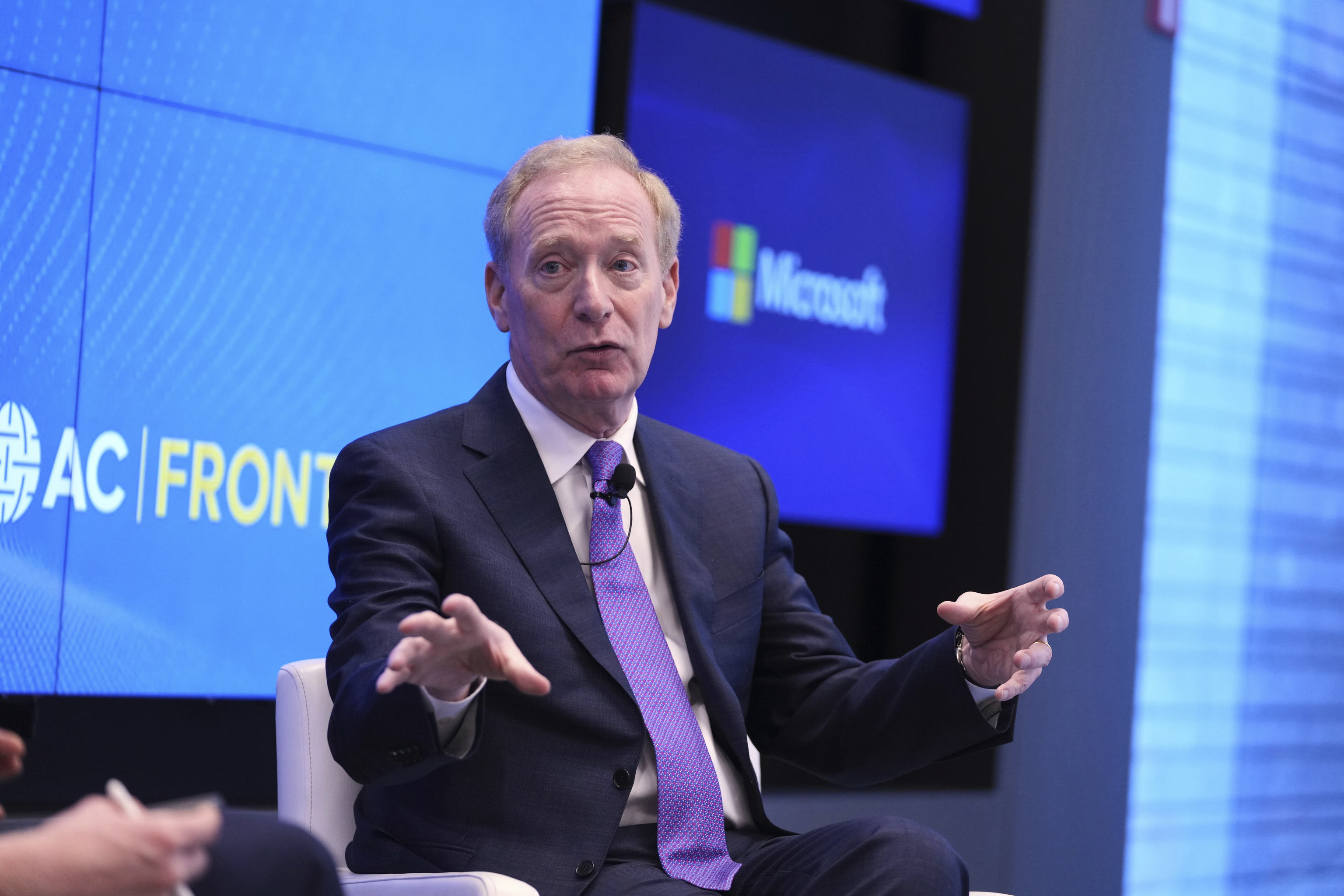Microsoft's President, Brad Smith, has chosen Brussels to make a statement to Europe in its economic challenge with the United States by reaffirming the company's commitment to the continent. He stated that the tech giant will increase its data center capacity by 40% by 2027, doubling the number of facilities compared to 2023, and will respect the privacy of European data.
The executive participated in the Atlantic Council event in the European capital and later held a press conference with European journalists to explain the company's principles aiming not to lose ground in the current climate. Among these purposes, Smith was clear in stating that he is willing to go to court to defend his clients from any request for European data by the Donald Trump administration. "We have a track record of doing so. We did it four times against the Obama administration. It happened again with the Trump administration regarding immigrant workers' rights. And not only do we go to court, but we also tend to win," he stated.
Furthermore, European data will continue to be stored on the continent and will maintain the privacy standards set by European laws. The tech company also announced that it will create a European governance structure for its digital infrastructures, ensuring that the over 200 data centers it will have in Europe will have their own management in the continent. The company plans to invest tens of billions annually. "I don't think there is any company investing more right now," emphasized the executive.
Additionally, a European cybersecurity director position will be created, second only to the group's global Cybersecurity Director. "Our mission is to protect Europe's security and that of all NATO countries. As you know, for Microsoft, this also includes Ukraine," the executive stated in a challenging remark that garnered applause in the room.
The clash between Europe and the United States has positioned tech companies as pawns on the chessboard. Trump has called for the removal of the well-known Google tax on Europeans, while in Brussels, threats have been made to impose tariffs on these companies, raising concerns about the lack of alternatives in this field.
One of the areas where Microsoft holds a significant market share is in the cloud, with nearly 30% market share. The absence of European companies in this segment means a substantial part of its business comes from Europe, and efforts to create a new Airbus that could provide an alternative could harm its business. Hence, the firm's determined response.
"We hope to be a bridge across the Atlantic and provide stability in a time of volatility," Smith emphasized. In this regard, the executive dismissed concerns that tariffs could pose a problem for Microsoft's service. "The cloud economy is easier to manage than devices," noted the executive, acknowledging that it is understandable for European governments to also support local companies.
In line with this, another commitment announced is the collaboration with other European cloud providers to enable them to offer Microsoft's applications and services on their own infrastructures. "This alliance will give European companies the opportunity to use Microsoft applications under more favorable conditions than those offered to Amazon and Google," stated the multinational's president, pointing out that the cloud market is much more competitive than other markets regulated by the Digital Markets Act, such as mobile app stores.
"I don't believe there is a single definition of technological sovereignty. Different approaches can be taken. One is that there is sovereignty only if the technology is created in Europe. Another would be that there is technological sovereignty if it is led by Europeans and under European laws," defended the executive, noting that the same division exists within the Commission (referring to clashes between Vestager and Breton).
"We have worked with both visions, but we advocate for the second. Let's have common rules and ensure that these laws address people's fears, give us access to Europe, and the opportunity to invest," he emphasized.
Another important aspect addressed is regulation. Smith argued that he believes it is necessary for AI to be interoperable globally, requiring a global understanding of how to regulate it. He also stated that, in his opinion, competition laws sometimes do not evolve quickly enough in the face of technology.
